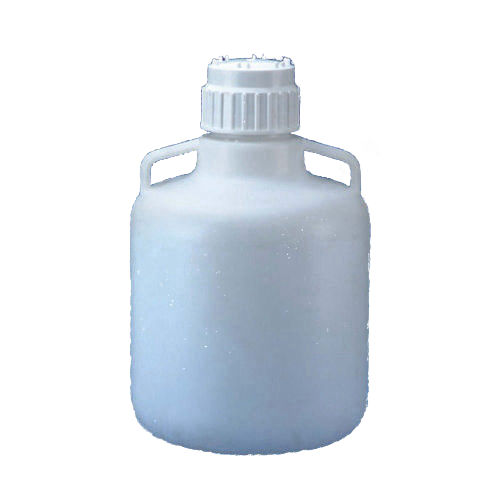A Carboy is a large-capacity laboratory container used for the storage and transport of liquids, such as water, chemicals, solvents, or culture media. Carboys are designed to be durable, leak-proof, and resistant to chemical corrosion, making them suitable for demanding laboratory environments. They are commonly made from high-density polyethylene (HDPE), polypropylene (PP), or borosilicate glass. Glass carboys offer excellent chemical and thermal resistance but require careful handling due to fragility, whereas plastic carboys are lightweight, shatter-resistant, and often more convenient for routine use. Carboys typically have a wide-mouth opening for easy filling and cleaning, and come with screw caps or bung closures to provide a secure seal. Some models include features like handles for easier carrying or graduated volume markings for rough measurement.
Feature of Carboy
-
Robust and leak-proof design for secure liquid containment
-
Chemical and impact resistant (plastic) or thermally resistant (glass)
-
Easy to fill and clean due to wide-mouth design
-
Suitable for autoclaving (glass and some PP models)
-
Compatible with dispensing valves, spigots, or stop cocks (sold separately)
-
Designed for storage, transport, and dispensing of laboratory reagents or solvents



There are no reviews yet.